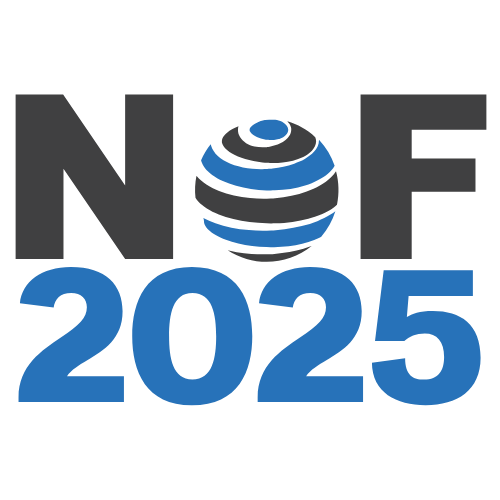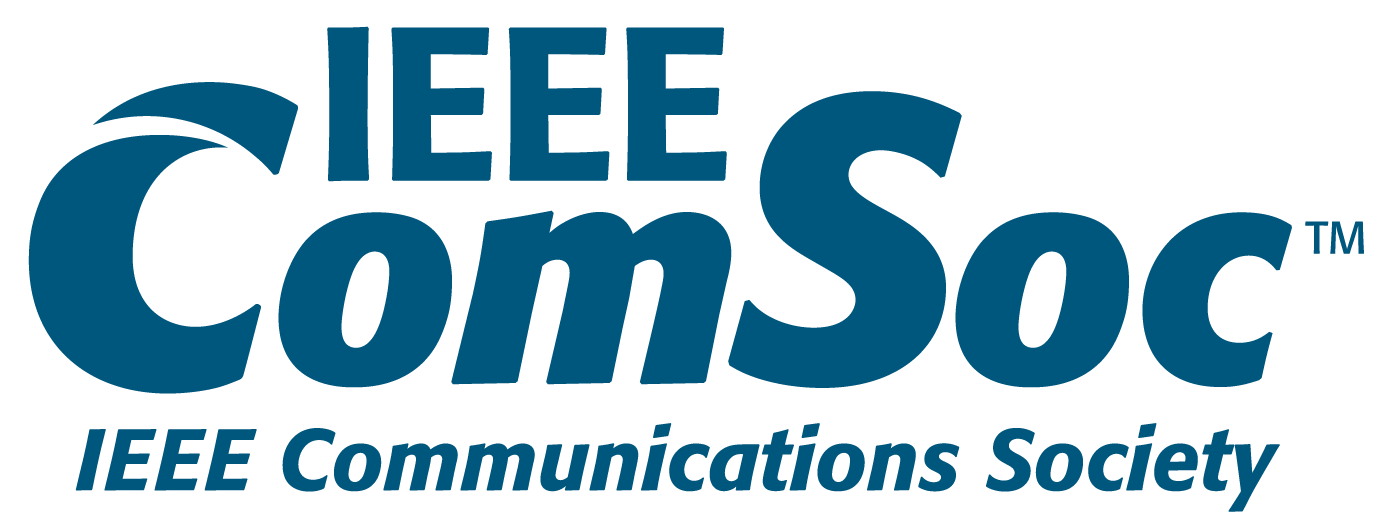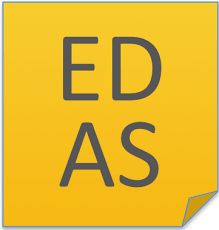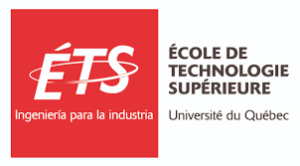NoF 2025 Panel
Title: Networks of the Future: 6G, AI, Emerging Technologies and Global Connectivity
Abtract: This panel brings together world-renowned experts from both industry and academia to explore the current and future directions of next-generation networks. The discussion will address the evolution of 5G and the transformative vision of 6G, highlighting how these technologies are expected to revolutionize applications and reshape our society. Key emerging technologies, such as Edge Computing, Internet of Things, and network softwarization, will be examined for their role in enabling scalable, flexible, and intelligent network infrastructures. The panel will also discuss the growing importance of non-terrestrial networks and their integration with 6G, opening new possibilities for global connectivity. Furthermore, the use of Artificial Intelligence, Machine Learning, and Large Language Models for network automation will be considered, emphasizing their potential to enhance efficiency, resilience, and adaptability in future networks. Together, these perspectives aim to provide a comprehensive outlook on the opportunities and challenges shaping the network of the future.
Moderator:
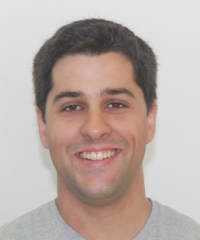
Jaime Galán Jiménez
(University of Extremadura, Spain)
Bio: Jaime Galán-Jiménez received his Ph.D. in Computer Science and Communications from the University of Extremadura (Spain) in 2014. He is currently working at the Department of Computer Systems and Telematics Engineering of the University of Extremadura (Spain) as Associate Professor. During the past years, he has spent several research and teaching periods at University of Rome Tor Vergata (2018), and at University of Rome La Sapienza (2015), Italy. His main research interests are network management, carbon-aware routing, AI/ML applied to networking, UAV-based 5G networks planning and design, and sofwarized and programmable networks. He is an Editor of IEEE Transactions on Network and Service Management, IEEE Transactions on Green Communications and Networking and Elsevier Ad Hoc Networks. He has been involved in the organization of several conferences on network and service management such as NOMS IPSN 2022-2025, CNSM 2024-2025, NetSoft 2025, NoF 2024-2025, ICIN 2025, CIoT 2024.
Panelists:

Halim Yanikomeroglu
(Chancellor’s Professor | Systems and Computer Engineering Director | Carleton–NTN (Non-Terrestrial Networks) Lab Carleton University, Ottawa, Canada)
Bio: Dr. Halim Yanikomeroglu is a Chancellor’s Professor at Carleton University, Canada, and the Founding Director of Carleton-NTN (Non-Terrestrial Networks) Lab. He is among the handful of academics recognized for substantial and impactful contributions in all three layers of NTN: aerial (UAVs), near-space (high altitude platform stations, HAPS), and space (satellites) networks. He has been among the champions of the UAV base station concept. He coauthored the highest number of papers in literature in HAPS networks. Dr. Yanikomeroglu has led several large-scale and high-profile collaborative research projects with industry (Canadian and international), the Government of Canada agencies, as well as the academic institutions and research centres around the world. His extensive collaboration with industry has resulted in 42 granted patents (several of his IP have been successfully commercialized). He has coauthored a high number of papers in 33 different IEEE journals. He gives around 25 invited seminars, keynotes, panel talks, and tutorials every year. He supervised or hosted in his lab 180 postgraduate researchers. Dr. Yanikomeroglu is a Fellow of several scholarly societies, including IEEE, the Engineering Institute of Canada (EIC), the Canadian Academy of Engineering (CAE), and the Asia-Pacific Artificial Intelligence Association (AAIA); he served as a Distinguished Speaker for the IEEE Communications Society and the IEEE Vehicular Technology Society. He served as the General Chair, Technical Program Chair, and Steering Committee Chair/Member of several major international IEEE conferences as well as in the editorial boards of several IEEE periodicals. He is currently serving in various governance and leadership roles in the IEEE. Dr. Yanikomeroglu received several awards for his research, teaching, and service. He holds a BSc degree in electrical and electronics engineering from the Middle East Technical University, and MASc and PhD degrees in electrical and computer engineering from the University of Toronto.

Burak Kantarci
(University of Ottawa, Canada)
Bio: Burak Kantarci is currently a Full Professor and the University Research Chair in AI-Enabled Secure Networking for Smart Critical Infrastructures, in the Faculty of Engineering, University of Ottawa. He is also the Founding Director of the Smart Connected Vehicles Innovation Centre (SCVIC) and the Next Generation Communications and Computing Networks (NEXTCON) Research Laboratory, University of Ottawa. He received the Ph.D. degree in computer engineering from in 2009. He is the author/co-author of more than 300 publications in established journals and conferences and 15 book chapters. He is a Senior Member of ACM. Continuously listed among the top-cited scientists in telecommunications and networking based on the data reported by Stanford University since 2020, and since 2021, based on data collected from Microsoft Academic Graph, research.com has listed him among Canada’s top computer scientists. He holds the Exemplary Editor Award from IEEE Communications Surveys and Tutorials (2021), and multiple best paper awards from various conferences, most recently from IEEE Globecom2024, IEEE VCC2023, IEEE ICC 2023, Wireless World Research Forum 2022, and IEEE Globecom 2021. He is a recipient of King Charles III Coronation Medal (Canadian Version), and was a recipient of the Minister’s Award of Excellence from Ontario Ministry of Colleges and Universities (2021) and the 2023 Technical Achievement Award of IEEE ComSoc Communications Software Technical Committee. He is also the winner of the 2024–2025 George S. Glinski Award for Excellence in Research in the Faculty of Engineering at University of Ottawa. He was a Distinguished Speaker of the Association of Computing Machinery (ACM) 2019–2021. He is also a Distinguished Lecturer of the IEEE Communications Society and the IEEE Systems Council. He has been a keynote/invited speaker or panelist in 40 events. In 2019 and 2020, he chaired the Communications Systems Integration and Modeling Technical Committee of the Institute of Electrical and Electronics Engineers (IEEE). He has been the general chair, the program chair, or the track chair of more than 30 international conferences. He is an Editor of the IEEE Communications Surveys and Tutorials and IEEE Transactions on Network Science and Engineering, an Associate Editor of IEEE Networking Letters and Vehicular Communications (Elsevier), a former Associate Editor of Internet of Things (2021–2024), and a former Area Editor of IEEE Transactions on Green Communications and Networking (2016–2021). He is a senior member of the IEEE and ACM.
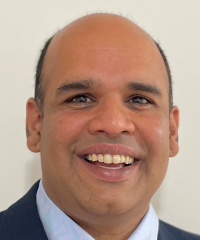
Venki Ramaswamy
(Chief Technologist for NextG MITRE Labs, USA)
Bio: Dr. Venkatesh Ramaswamy is Chief Technologist for NextG at MITRE Labs in Bedford, Massachusetts where he currently leads technical innovation and R&D activities in 5G/xG technologies. He has more than 20 years of experience in the telecommunications industry and has held technical leadership positions at top technology companies, startups, and research labs. Currently he serves as one of the active industry members of the ATIS/Next G Alliance Research Council working on the development of a comprehensive North American 6G strategy. He also an industry researcher at the NSF Edge AI Institute looking at synergies between networking and AI. He has published more than 50 peer-reviewed publications and patents, served as a TPC member for various conferences, and participated in several technical panels. He received his PhD in Electrical Engineering in 2007.

Carol Fung
(Concordia University, Canada)
Bio: Dr. Carol Fung is an associate professor and Gina Cody Research chair in Cybersecurity and the Internet of Things at Concordia University, Canada. received her PhD degree in computer science from the University of Waterloo (Canada), and her bachelor’s and master’s degree in computer science from University of Manitoba (Canada). Her research area focuses on Cybersecurity and network management, including secure and privacy protection, trust management, resource allocation and performance optimization. Her research has applications in IoT networks, SDN/NFV networks, 5G networks, social networks and smartphone networks. She is the recipient of the IEEE/IFIP IM Young Professional Award in 2015, University of Waterloo Alumni Gold Medal in 2013, best paper awards three times in IM/NOMS. She has led the organization of many academic conferences and workshops including IEEE/IFIP IM 2019 and IEEE CSNet 2022. She is an associate Editor for IEEE TNSM and Elsevier COMNET.
